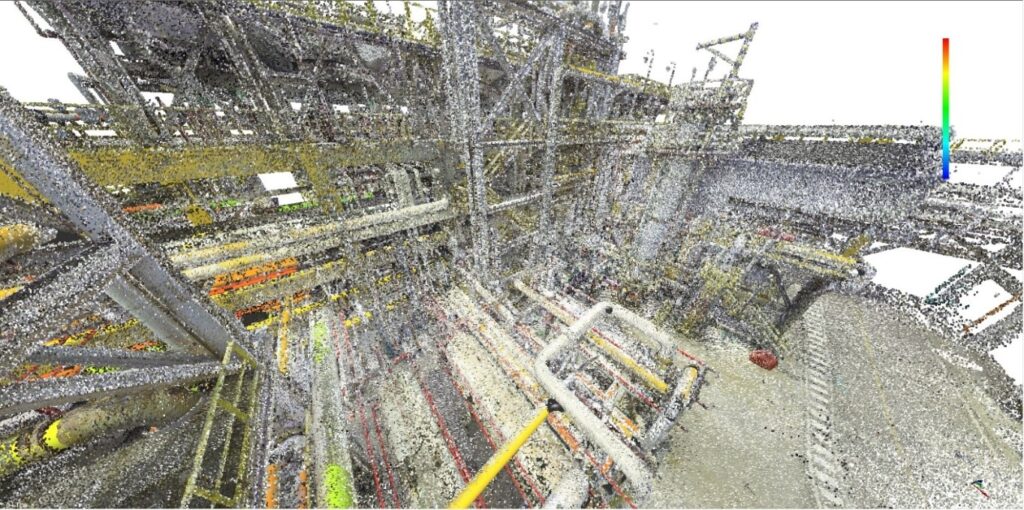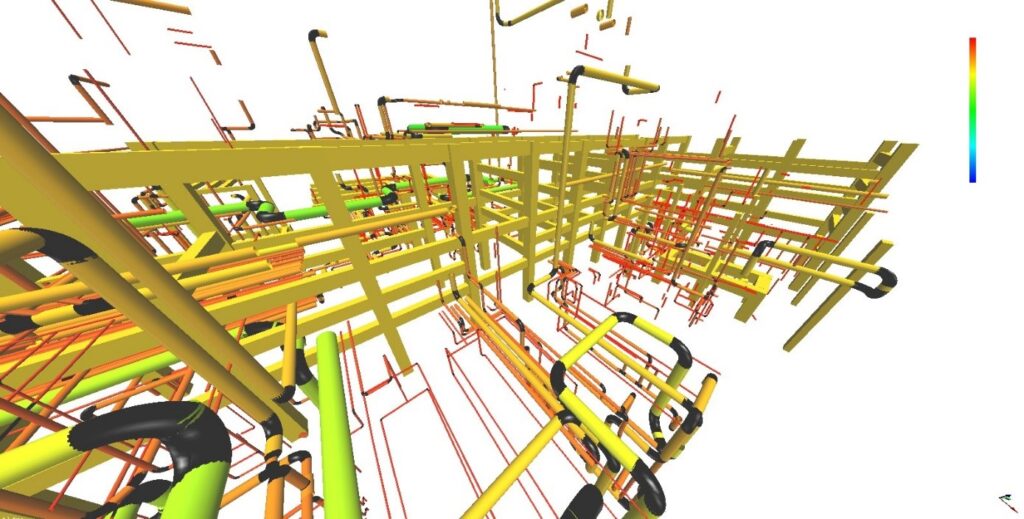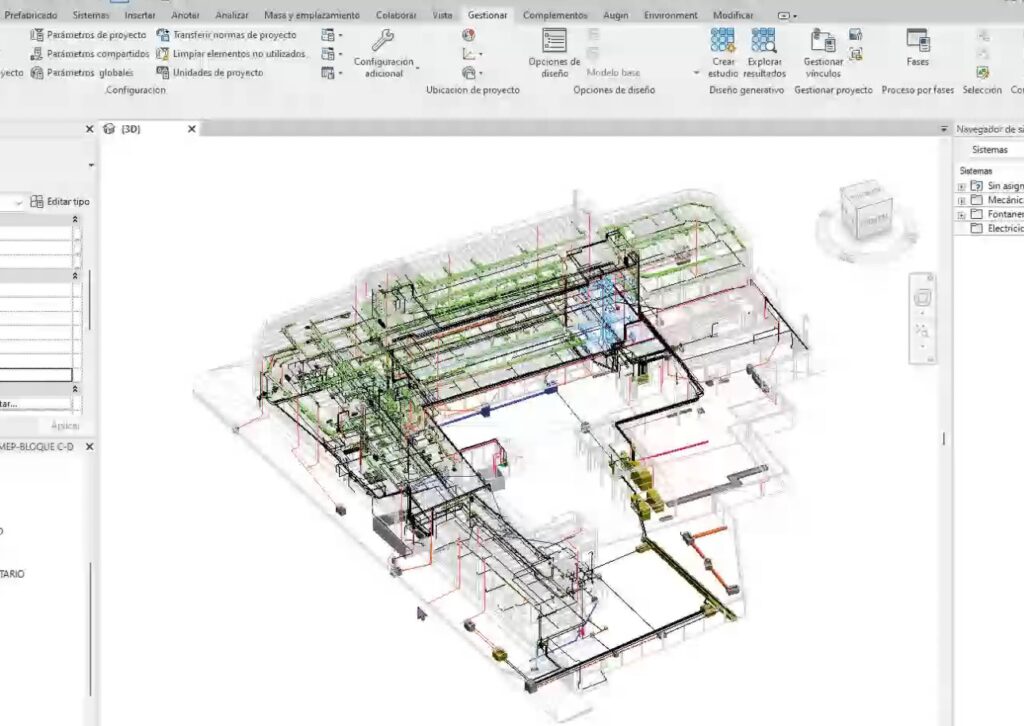The digital era has marked a before and after in countless sectors, with construction being one of the most recently impacted. Innovations such as Deep Learning and the Scan to BIM process are redefining the traditional paradigms of design, execution, and maintenance of infrastructures. This article explores how the convergence of these technologies promises to revolutionize construction, driving an era of greater efficiency, precision, and sustainability.
Recent research has highlighted the potential of Deep Learning to transform the Scan to BIM process. A notable study proposed a method to automatically remove unwanted elements in point cloud data using a 2D projection approach of 3D point clouds and the implementation of advanced algorithms. This method has proven to be more accurate and efficient than commercial software solutions, especially in complex indoor environments, marking a significant advance in the automation of the Scan to BIM process. (https://www.researchgate.net/publication/361671547_Deep_Learning-Based_Automation_of_Scan-to-BIM_with_Modeling_Objects_from_Occluded_Point_Clouds)

The technology FloorPP-Net illustrates another significant advance by using Deep Learning to enhance corner detection and edge verification in floor plan reconstruction. Although still in development phases, this methodology represents a significant step towards the complete automation of the Scan to BIM process, offering a new path for the efficient and accurate creation of BIM models from scanned data.
The adoption of Deep Learning in the realm of Scan to BIM entails several challenges, including the need for large volumes of data for effective model training. However, the development of simulations and synthetic data presents innovative solutions to these barriers, facilitating greater precision and efficiency in the generation of BIM models. (https://www.researchgate.net/publication/356962206_An_Integrated_Assessment_Framework_of_Economic_Environmental_and_Human_Health_Impacts_Using_Scan-to-BIM_and_Life-Cycle_Assessment_in_Eexisting_Building)

The future of construction, driven by Deep Learning and Scan to BIM, is full of possibilities. These still-evolving technologies have the potential to radically transform the industry, raising standards of precision, efficiency, and sustainability. Early adoption and collaboration among industry professionals will be crucial to fully leverage these emerging technologies and shape the future of construction.
Construction professionals and companies are faced with a unique opportunity to lead this digital transformation. Investing in these technologies will not only improve the quality of current projects but will also lay the groundwork for future developments in the sector. It is time to dive into the study and application of Deep Learning and Scan to BIM to build a more efficient and sustainable future in the construction industry.
Continuous review of the literature and participation in international challenges such as the 1st International Scan-to-BIM Challenge are essential to keep up with the latest advancements and better understand the current capabilities and limitations of these technologies. Through experimentation and collaboration, we can overcome existing challenges and discover new applications and improvements for these revolutionary tools.
The integration of Deep Learning in the Scan to BIM process is more than a technological improvement; it is a reimagining of how we can build and maintain our infrastructures. As we move towards a more digitalized and automated construction industry, it is crucial that we embrace these new tools with an open mind and a proactive attitude towards learning and innovation.

Figure 3: 3d BIM model Scan to BIM, Architecture, Structure and MEP. Arplan. www.arplan.com.co
Through global collaboration and knowledge sharing, we can achieve a significant transformation in the sector, paving the way to a smarter, more efficient, and environmentally friendly construction future.
To stay relevant in this new era, it is crucial that industry professionals continuously seek professional development and continuing education opportunities. Participating in workshops, seminars, and courses related to Deep Learning and Scan to BIM will not only expand their skills and knowledge but will also enable them to apply these innovative technologies more effectively in their current and future projects.
Success in implementing these technologies depends on collaboration among various professionals including architects, engineers, builders, and IT specialists. Interdisciplinary collaboration facilitates the seamless integration of Deep Learning and Scan to BIM into the construction process, allowing for a more complete understanding and more efficient application of these tools.
The adoption of Deep Learning and Scan to BIM represents a significant opportunity for the construction industry to improve the accuracy, efficiency, and sustainability of projects. By committing to continuous education, interdisciplinary collaboration, and exploration of new technologies, industry professionals can lead the way to a more innovative and sustainable future in construction.
JOSE RODRIGO TORRES MARTINEZ
ARQ. MSC. MAB. PHD (C). PMP
CEO @ArplanColombia
